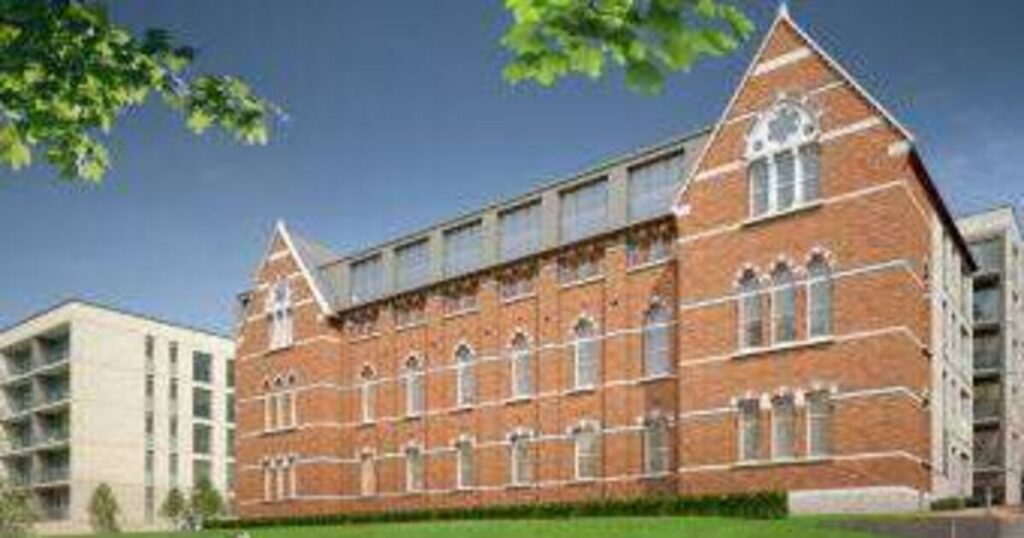Plans for a large student accommodation complex, featuring 957 beds, on the grounds of a former convent, orphanage, and Magdalene laundry in Cork City are currently on hold due to several objections.
An Coimisiún Pleanála is reviewing four appeals against Cork City Council’s approval of planning permission for 274 student apartments. This large-scale residential development is proposed for the site of the former Good Shepherd Convent on Convent Avenue, Sunday’s Well, in Cork’s north-west.
The appeals include objections from the Blarney Street & Surrounding Areas Community Association, representing local residents.
Bellmount Good Shepherd Limited, owned by developers Padraig and Seamus Kelleher, is proposing the development on the 3.57-hectare site. The plan involves eight student accommodation apartment blocks, ranging from three to five stories high.
A separate three-story, mixed-use building is also in the plans, featuring shops on the ground floor and student housing above.
The project will include partial demolition, conservation efforts, redevelopment, and extensions of the existing Good Shepherd Convent buildings.
The existing Gate Lodge is slated for conversion into a café with co-working space.
Most of the buildings are presently derelict, suffering extensive fire damage that has destroyed floors, roofs, and interior finishes. One such fire occurred in April 2025.
The Good Shepherd Convent was founded in 1870 and closed by the Good Shepherd Sisters order in 1977.
University College Cork previously considered using the convent and its grounds for a new campus in the 1990s but later abandoned the plan.
Justice for Magdalenes Research has documented the names of 195 women and girls who died at the Good Shepherd laundry.
Cork City Council’s planning permission is conditional, requiring all construction to cease if any human remains are discovered on the site.
The Blarney Street & Surrounding Areas Community Association, in its appeal, stated they understand the need for student housing but have serious concerns about this proposal’s suitability and location.
Tom Coleman, the group’s chairperson, argued the proposal represents overdevelopment and is out of character with the surrounding area.
Residents are reportedly concerned about increased noise levels, particularly during evenings and weekends.
“This does nothing to improve social cohesion or foster a sense of long-term community, which is meant to be one of the stated priorities of Cork City Council’s development strategy,” Mr. Coleman stated.
He also pointed out existing traffic congestion problems, arguing that the assumption that students will use sustainable transport underestimates the need for private car use.
The community group claims the development will lead to hundreds of additional car journeys weekly in an already congested residential area, potentially hindering emergency service access.
Another appellant, Jurek Kirakowski, questioned the location choice, arguing it’s illogical to create a large student center on the north side of the River Lee, given that the primary third-level institutions are mostly located south of the river.
Martin Krase, another objector, stated that the failure to act on previous development permissions demonstrates the site’s unsuitability and lack of viability for a large-scale project.
Bellmount, however, maintains that their proposed development, planned in five phases, will deliver much-needed purpose-built student accommodation within Cork City.
“The proposed development will see student accommodation provided in a location that is very accessible to high-level education campuses by means of walking, cycling and public transport,” the company stated.
It added: “The development will contribute to a mixed and inclusive neighbourhood by way of layout and shared amenity uses.”
A decision on the appeals is expected by early November 2025.


